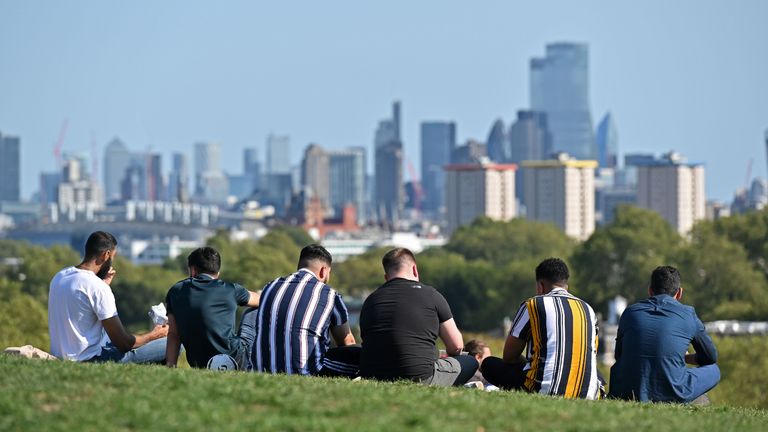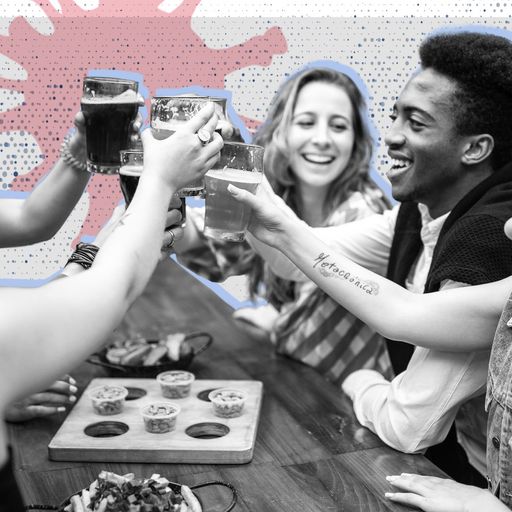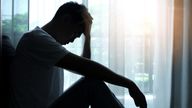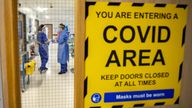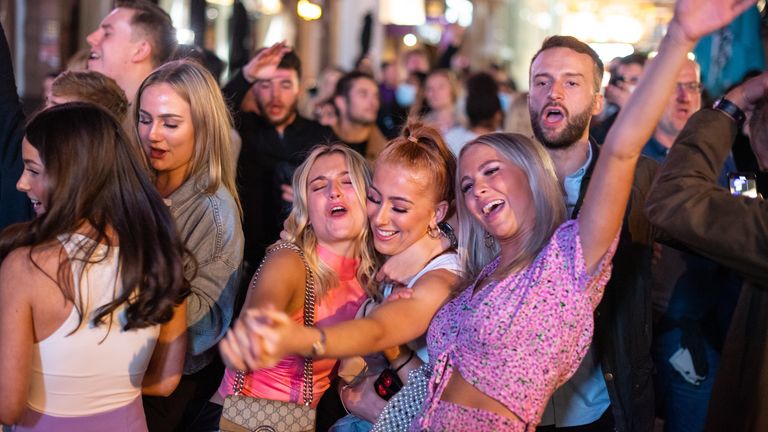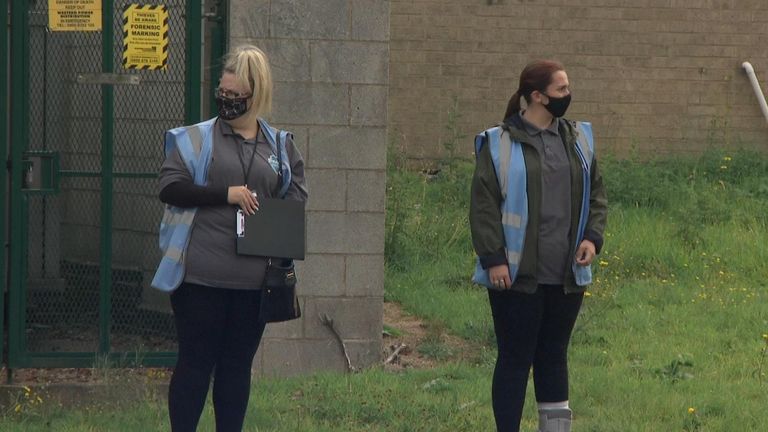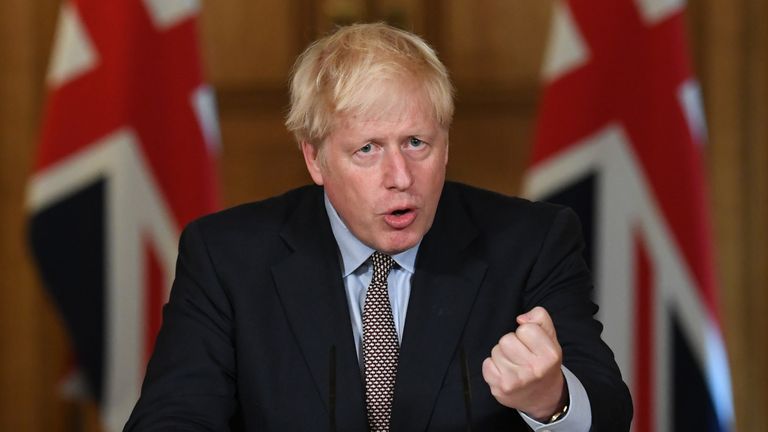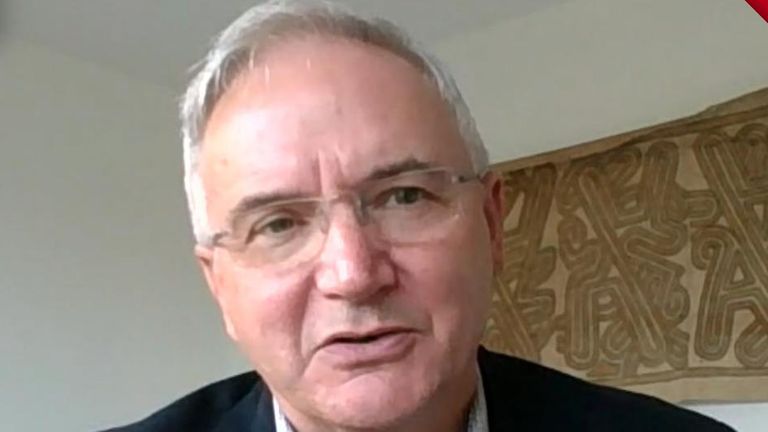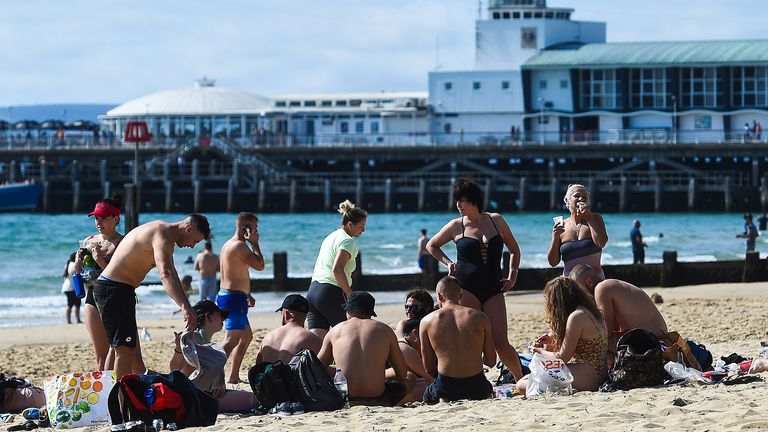Coronavirus: 'Rule of six' comes into force as medics warn of second COVID-19 peak
From today, people face fines of up to £3,200 if they do not abide by the new measure which aims to curb a rise in COVID-19 cases.
Monday 14 September 2020 14:05, UK
Social gatherings of more than six people are now illegal in England as the coronavirus "rule of six" comes into force.
From today, people face fines of up to £3,200 if they do not abide by the new measure which aims to curb an increase in COVID-19 cases.
A total of 3,330 confirmed coronavirus cases were recorded in the UK on Sunday - the first time since May that cases have been above 3,000 on three consecutive days.
The "rule of six" differs slightly in Scotland and Wales and has limited exemptions including weddings and funerals, while work and education are not affected.
It applies to gatherings both indoors and outdoors in England and Scotland, but only indoors in Wales where groups of up to 30 people can meet outside.
The rule also applies to all ages in England but children under 11 and 12 are exempt in Wales and Scotland respectively.
In Northern Ireland, the number of people who can gather indoors in a private home was reduced last month to six people from two households due to a rise in coronavirus cases. Up to 15 people can meet outdoors there.
The chairman of the National Police Chiefs' Council urged the public to "stick to the limits".
"The demands on the police service are now at similar levels to before the pandemic, which makes it crucially important that we all take personal responsibility, stick to the limits and prevent the spread of this deadly virus," Martin Hewitt said.
The Metropolitan Police said officers will be deployed in every London borough to patrol public spaces and respond swiftly to incidents where groups gather in large numbers.
"Where people just won't listen, and are putting everyone at risk, we absolutely will take enforcement action," Deputy Assistant Commissioner Matt Twist said.
Regulations enabling the enforcement of the rule were published late on Sunday night, around 30 minutes before they came into effect.
Police will be able to disperse gatherings of more than six people and issue fines ranging from £100 to £3,200.
Prime Minister Boris Johnson has said "COVID-secure marshals" will also work in town and city centres to enforce social distancing rules.
Officials will be hoping the warm and sunny weather forecast for Monday does not encourage people to gather in groups in outdoor spaces.
Temperatures as high as 29C (84F) are expected in some parts, according to the Met Office.
:: Subscribe to Sophy Ridge on Sunday on Apple podcasts, Google podcasts, Spotify, Spreaker
The new restrictions came as a survey of more than 8,000 doctors and medical students in England found 86% believe a second peak of coronavirus is likely in the next six months.
The British Medical Association (BMA), which conducted the survey, said the poll also revealed that a second peak is the "number one concern among the medical profession".
Dr Chaand Nagpaul, BMA council chairman, said: "With daily cases still alarmingly high, and winter just around the corner, we are at a critical crossroads in the fight against this deadly virus.
"All efforts must be made to avoid a repeat of the horror and tragedy we all experienced earlier this year."
A government adviser told Sky News the UK faces another national lockdown "in short order" unless people abide by new COVID-19 restrictions.
Peter Openshaw, a professor of experimental medicine at Imperial College London, told Sophy Ridge On Sunday the public "must act fast" to stop the spread of coronavirus.
"If we don't do this now we are going to be right back in hard lockdown in short order, that's the only way we have at the moment for controlling this but there are other things on the horizon," he said.
"We need to act quickly. This isn't a game."
Police shut down a series of illegal parties over the weekend as people enjoyed a final weekend of revelry before the tougher coronavirus restrictions came into force.
Nottinghamshire Police issued a "reckless" teenager with a £10,000 fine for hosting a house party in Lenton, which saw more than 50 guests gather at his home.
The rate of COVID-19 transmission in the UK has risen above a critical level that means the infection is growing exponentially, official figures show.
The latest estimate for the R number across the UK is between 1.0 and 1.2, according to the Scientific Advisory Group for Emergencies (SAGE).
The last time it was above one was in early March.
The R number represents the average number of people each person with coronavirus goes on to infect.

